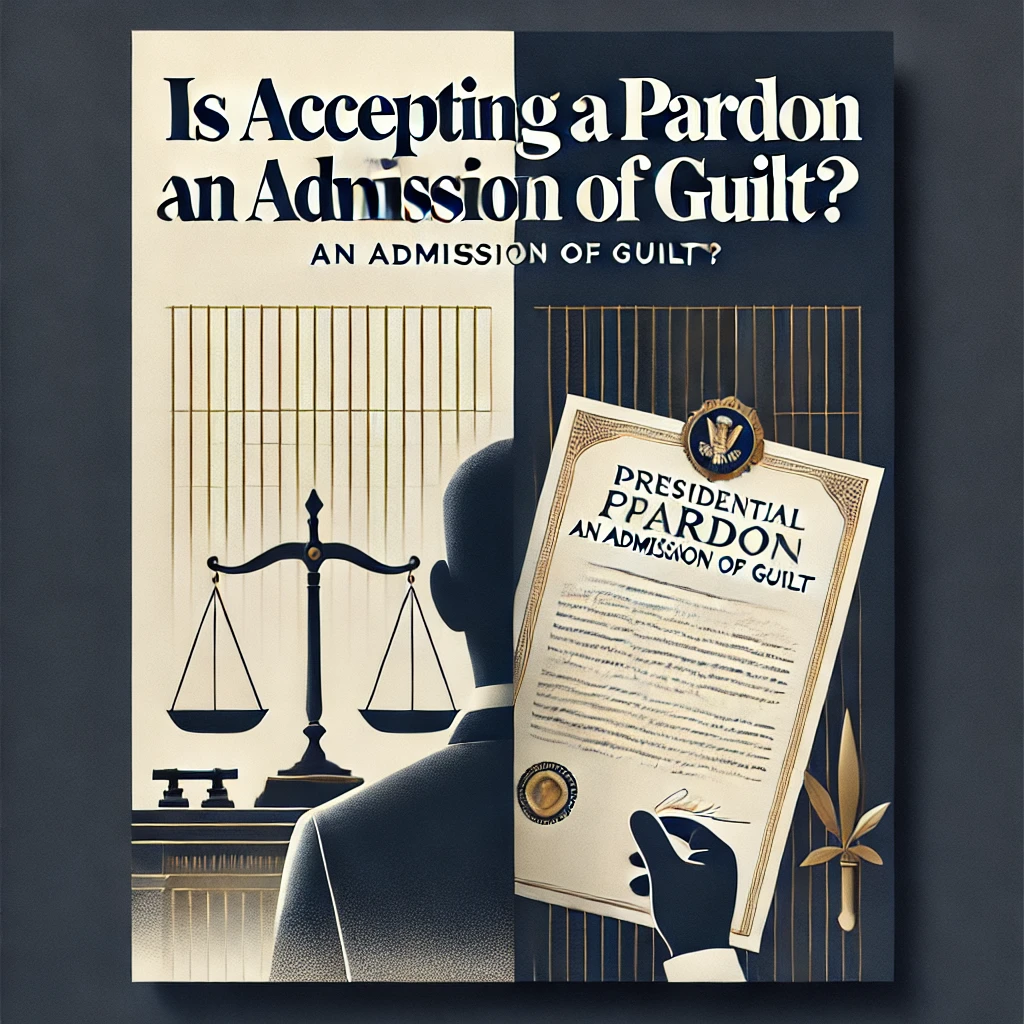Is Accepting a Pardon an Admission of Guilt?

The question of whether accepting a pardon constitutes an admission of guilt is nuanced and has been addressed differently in various cases.
- In Lorance v. Commandant, U.S. Disciplinary Barracks, the Tenth Circuit held that Lorance’s acceptance of a pardon did not constitute a legal confession of guilt. The court emphasized that Lorance had consistently maintained his innocence and that the pardon did not purport to address his innocence or guilt (Lorance v. Commandant, U.S. Disciplinary Barracks, 13 F.4th 1150 (2021))[1]. The court also rejected the government’s interpretation of the dicta in Burdick v. United States to mean that accepting a pardon had the legal effect of a confession of guilt in this case (Lorance v. Commandant, U.S. Disciplinary Barracks, 13 F.4th 1150 (2021)).
- In Fletcher v. Graham, the Supreme Court of Kentucky cited Burdick v. United States, which stated that a pardon “carries the imputation of guilt; acceptance a confession of it” (Fletcher v. Graham, 192 S.W.3d 350 (2006)). This case supports the notion that acceptance of a pardon can imply a confession of guilt.
- The United States District Court for the District of Kansas in Lorance v. Commandant (2020) also referenced Burdick, noting that acceptance of a pardon may imply a confession of guilt. However, this decision was reversed and remanded by the Tenth Circuit in 2021 (Lorance v. Commandant, 435 F.Supp.3d 1169 (2020)).
- The Supreme Court of Florida in R.J.L. v. State and the Court of Appeals of Ohio in State v. Radcliff both referenced Burdick, affirming that acceptance of a pardon implies a confession of guilt (State v. Radcliff, 978 N.E.2d 1275 (2012)).
- The Supreme Court of Missouri in State v. Jacobson distinguished between ordinary pardons, which imply guilt, and pardons granted because the grantor was satisfied of the innocence of the accused. In the latter case, acceptance of the pardon does not imply a confession of guilt (State v. Jacobson, 348 Mo. 258 (1941)).
- The Court of Criminal Appeals of Tennessee in State v. Blanchard and the Court of Appeals of New York in People ex rel. Prisament v. Brophy also supported the view that acceptance of a pardon implies a confession of guilt (State v. Blanchard, 100 S.W.3d 226 (2002)).
In summary, while many courts have held that acceptance of a pardon implies a confession of guilt, there are exceptions, particularly when the pardon is granted on the grounds of innocence. The specific circumstances and language of the pardon can influence whether acceptance is seen as an admission of guilt.
